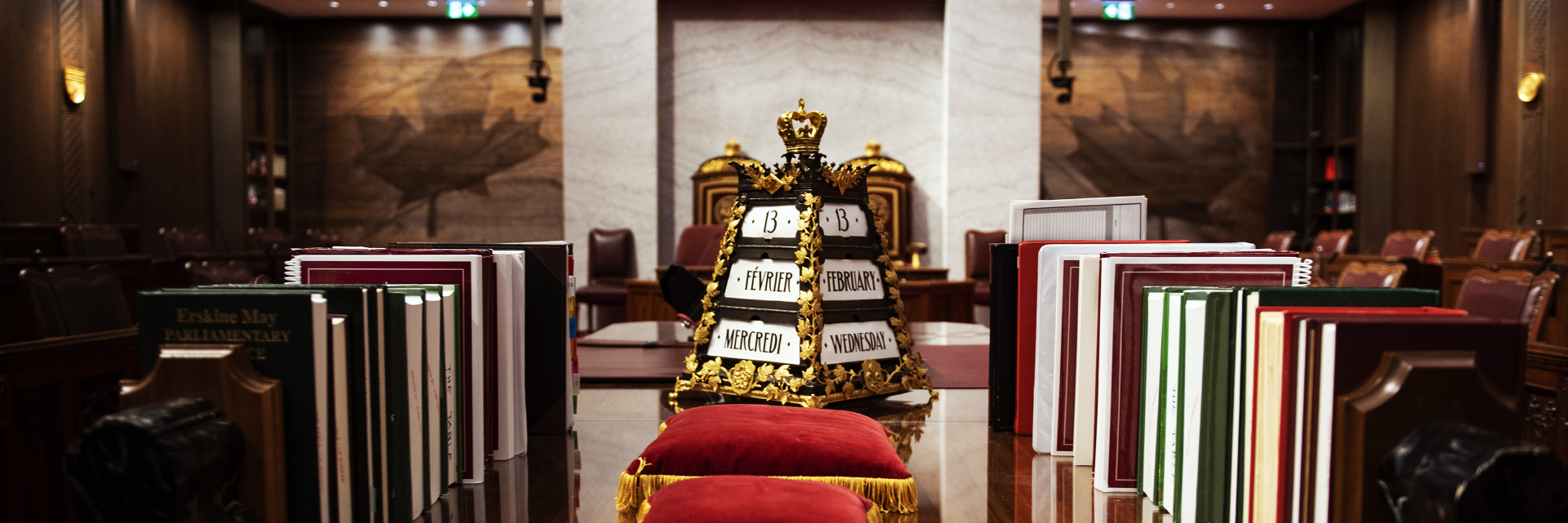Chapter Ten: Public Bills
Stages of the Legislative Process
10-1. A pro forma bill shall be introduced and receive first reading after the Speech from the Throne has been read to open a session.
10-2. A Senator may, as of right, introduce a bill in the Senate.
10-3. The introduction and first reading of a bill are decided without debate or vote. Immediately after the first reading, the bill shall be published.
10-4. The principle of a bill is usually debated on second reading.
10-5. At any time before a bill is passed, a Senator may move for the reconsideration of any clause already carried.
10-6. When the Senate has read a bill the third time, the bill is passed and shall not be further debated or amended.
Supply Bills
10-7. The Senate shall not proceed with a bill appropriating public money unless the appropriation has been recommended by the Governor General.
REFERENCE
Constitution Act, 1867, section 54
10-8. A bill of aid or supply shall not be amended to include any clause that is foreign to or different from the matter of the bill.
Senate Bills
10-9. When a bill originating in the Senate has been passed or defeated, no new bill with the same object shall originate in the Senate during the same session.
10-10. (1) The Law Clerk may, as required at any stage in the legislative process, make minor non-substantive corrections to a bill, including corrections to:
(a) remove technical, typographical, grammatical or punctuation errors;
(b) modify the table of provisions, the summary or the marginal notes to take into account substantive amendments made to the bill during the legislative process;
(c) renumber provisions as a consequence of amendments made to the bill during the legislative process;
(d) update cross-references as a consequence of corrections made under paragraphs (a) or (c);
(e) modify, add or remove headings as a consequence of amendments made to the bill during the legislative process, to ensure that the headings correspond with the provisions that follow them; and
(f) revise or remove coordinating amendments as a consequence of the enactment of any provision referred to in those amendments.
10-10. (2) At the request of the Clerk, the Law Clerk shall report any corrections made under subsection (1) to the Clerk.
Pre-Study of Commons Bills
10-11. (1) The subject matter of a bill originating in the House of Commons may be referred to a standing committee for study at any time before the bill is received in the Senate.
10-11. (2) Notice of motion for such referral may be given either:
(a) by the Leader or the Deputy Leader of the Government at any time during a sitting; or
(b) by any Senator at the appropriate time during Routine Proceedings.

